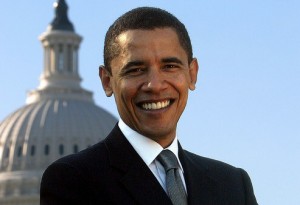Of all the players in the rancid shoutfest — please don’t call it a “debate” — about “health care reform,” the most reprehensible may be the journalists. At least the others — the politicians, the lobbyists, the corporations, the perpetually paranoid — are acting and speaking in ways that are true to their natures.
Most journalists, on the other hand, pretend to a higher calling, then fail to answer the call. Most of them are as cowed by the loud and the stupid as anyone, but pretend to be judiciously weighing their words. Because the right has trumpeted that the government is proposing to conduct euthenasia on old people, the journalists have cravenly classified this as a conservative-liberal dispute, calling for an even-handed presentation quoting both sides. In fact (if I may use that word in its absolute sense) the only useful distinction to be made about this odious allegation is whether it is true, which it patently and obviously is not, or whether it is a lie. Not a mis-statement, not an exaggeration or a matter of opinion, but a damned lie.
Journalistic objectivity does not forbid the branding of a lie as a lie, it requires it. Who has done it?
I have seen a woman proclaim on a television ad dozens of times that she was denied treatment for her brain tumor in Canada, and the ad proceeds to imply that “health care reform” will lead to a Canadian style of health system in America. I have never seen a news cable network or newscast check the womn’s claim, or analyze the ad’s implication. Every news organization had fact-checks for all the allegations made in the presidential election campaign, but they don’t do it when it concerns the actual government of the country?
Perhaps the industrial media are so distracted by their own death spiral of declining circulation, ratings and revenues that they are unable to remember, let alone summon, the integrity, courage and service to the truth that is supposed to be their hallmark.
The depth of their failure in this essential regard is illuminated by the stellar performance of a non-journalist, a man who insists he is just a comedian, in doing the work that journalism is supposed to do. John Stewart’s Daily Show interview of Betsy McCaughey — a slightly-less-loopy-than-usual proponent of the death squad crowd, is by far the best journalistic performace of the year. He knows the subject better than she does, refuses to let her get away with non-sequitirs, lies, and other offenses, exposes her as a demagogue, and does so without becoming in any way offensive.
Watch both parts of the interview. And see what we’re missing on CBS and CNN. Of all the players in the rancid shoutfest — please don’t call it a “debate” — about “health care reform,” the most reprehensible may be the journalists. At least the others — the politicians, the lobbyists, the corporations, the perpetually paranoid — are acting and speaking in ways that are true to their natures.
Most journalists, on the other hand, pretend to a higher calling, then fail to answer the call. Most of them are as cowed by the loud and the stupid as anyone, but pretend to be judiciously weighing their words. Because the right has trumpeted that the government is proposing to conduct euthenasia on old people, the journalists have cravenly classified this as a conservative-liberal dispute, calling for an even-handed presentation quoting both sides. In fact (if I may use that word in its absolute sense) the only useful distinction to be made about this odious allegation is whether it is true, which it patently and obviously is not, or whether it is a lie. Not a mis-statement, not an exaggeration or a matter of opinion, but a damned lie.
Journalistic objectivity does not forbid the branding of a lie as a lie, it requires it. Who has done it?
I have seen a woman proclaim on a television ad dozens of times that she was denied treatment for her brain tumor in Canada, and the ad proceeds to imply that “health care reform” will lead to a Canadian style of health system in America. I have never seen a news cable network or newscast check the womn’s claim, or analyze the ad’s implication. Every news organization had fact-checks for all the allegations made in the presidential election campaign, but they don’t do it when it concerns the actual government of the country?
Perhaps the industrial media are so distracted by their own death spiral of declining circulation, ratings and revenues that they are unable to remember, let alone summon, the integrity, courage and service to the truth that is supposed to be their hallmark.
The depth of their failure in this essential regard is illuminated by the stellar performance of a non-journalist, a man who insists he is just a comedian, in doing the work that journalism is supposed to do. John Stewart’s Daily Show interview of Betsy McCaughey — a slightly-less-loopy-than-usual proponent of the death squad crowd, is by far the best journalistic performace of the year. He knows the subject better than she does, refuses to let her get away with non-sequitirs, lies, and other offenses, exposes her as a demagogue, and does so without becoming in any way offensive.
Watch both parts of the interview. And see what we’re missing on CBS and CNN.
Of all the players in the rancid shoutfest — please don’t call it a “debate” — about “health care reform,” the most reprehensible may be the journalists. At least the others — the politicians, the lobbyists, the corporations, the perpetually paranoid — are acting and speaking in ways that are true to their natures. Continue reading →
